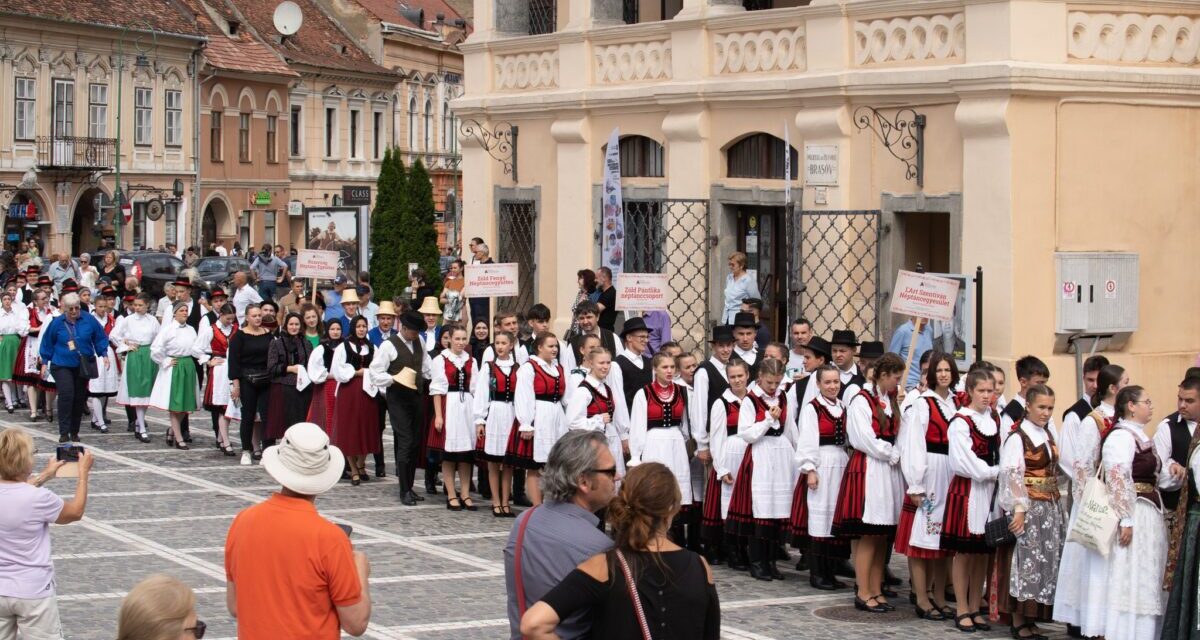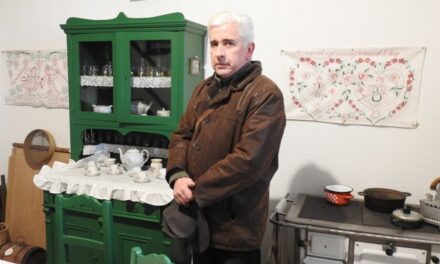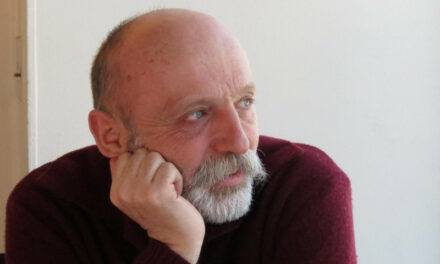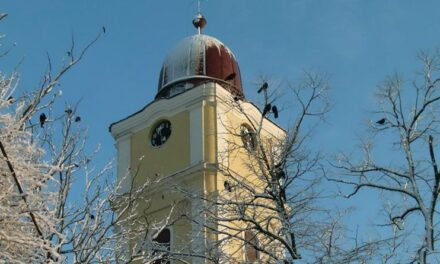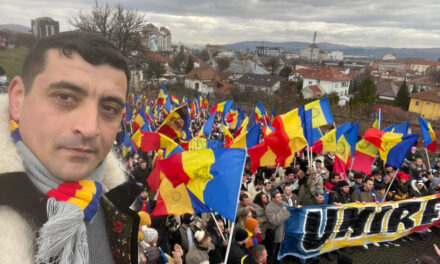They prepared for the Brasov Nagyar Days with unbroken enthusiasm.
There is still no Hungarian cultural institution system in Brasov, and the number of Hungarians is dwindling, despite this, the Hungarian days are being organized for the 14th time starting from Sunday, which awaits the audience with a rich and varied offer this year. We asked chief organizer Tamás Toró about the celebration under Cenk, which is expected to attract participants from all over the world.
The Brasov Nagyar Days, which will now be organized for the 14th time, are a meeting point to which Hungarians from the city - wherever they live in the world, in Europe, in Transylvania, overseas - come home
- chief organizer Tamás Toró said about the series of events starting on Sunday, September 15 and lasting until September 22. At the beginning of our conversation, he highlighted, to his great pleasure, that Krónika has been a supporter of the Hungarian holiday under Cenk from the beginning, and this is important, because it shows that the organizers are not only sending a message to the people of Barcáság, Brasó, and the people of Brasó County with the event, but practically welcome everyone to the From Székelyland, all of Transylvania, Hungary, and even from across the sea.
"We have always kept this in mind, which is why we organize the Hungarian days every year at the same times, so that it becomes a habit for the audience in a good sense. We try to put together a program every year - obviously according to our financial possibilities - that appeals to as many people as possible."
said the main organizer. He also talked about the sources from which they managed to organize the Hungarian Days in Brasov this year. He explained that the point is that the event is the result of cooperation in the Carpathian Basin.
"We are struggling with difficulties, but we received a lot of help for the organization: we are supported by the Hungarian state, local Hungarian entrepreneurs, volunteers, the national RMDSZ, the city RMDSZ in Brasov and partly also the local governments: county and city - these resources are very thank you From the point of view of Hungarian culture, we have difficulties in Brasov because we don't even have a cultural space, but let's keep doing it with unbroken faith. After all, I think that no matter how many of us remain, there are still a significant number of Hungarians living in the city."
Tamás Toró pointed out. As he pointed out, it is important to know and emphasize that there is no independent Hungarian cultural institution system in Brasov. "So we are practically at the mercy of the current city administration. Practically all of our resources come from tenders, we write about a hundred tenders in order to make the event possible, in this respect we operate almost like the big festivals in Northern Transylvania," said Tamás Toró. He added that it is the biggest Hungarian cultural event in Southern Transylvania, since the majority of Hungarians live in Brasó county in this region.
He also said that according to the data of the latest census, the Hungarian population of the county and the city has also decreased: in Brasó county it has decreased from 38 thousand to 28 thousand, and in the city from 17 thousand to 11 thousand.
"Accordingly, in the county of Brassó, the representative of Hungarians can be included in the local government, but not in the city. Nevertheless, the Hungarian days are an event that fills a gap in Southern Transylvania, and we consider it important to organize it every year, in order to make ourselves visible, so that the main square of Brasó is full of Hungarian words, and Hungarian culture inhabits the center."
said the main organizer. He also touched on the fact that they try to innovate the offer every year, to provide the audience with something extra, and they take into account feedback and needs from the audience. He pointed out that on Hungarian days, the Barcaság folk dance groups parade through the city center in folk costumes, this is a kind of "demonstration of strength" in a good sense, so that the majority and tourists can see the beautiful Hungarian folk costumes.
"It is also important that the Petőfi 200 exhibition is coming to Brasov, the exhibition will be on display for three weeks. It should also be emphasized that the 100-member Gypsy Orchestra had a great dream of the Hungarians in Brasov, we could not solve this until now, but now we have succeeded. We also organize big concerts, and we host important events in the field of folk dance: the Búzavirág Folk Dance Group from Brasov is 75 years old, and we are celebrating the anniversary with a gala show: the guest of honor will be István Pál "Szalonna" folk musician and his band, who are considered the top of the profession.
– listed Tamás Toró.
He also added that an Árpád plaque with a stylized representation of the Árpád statue on Cenk will be handed over as part of the Hungarian Days. Excursions to Cenk are organized, a city tour is also included in the program, as well as the In memoriam István Reich folk dance meeting in Barcaság, which by the way became one of the largest folk dance meetings in Transylvania.
"We will promote our local talents and local ensembles, there will also be a producers' and handicrafts fair, so we will symbolically "take back" Brasó's main square, so to speak. Szandi is performing in Transylvania after 14 years, and we are also very happy that the venue of the concert is the Great Days in Brasov, but I would also highlight the performance of Queen's best Hungarian tribute band"
- listed the main organizer. Don't stop the Queen! by the way, the formation gave a fantastic concert at the Hungarian Days in Cluj in August, the audience enthusiastically celebrated them. A special work will also be presented at the Hungarian Days in Brasov: on September 18, the audience can see the documentary Eötvös expedition in the Modern cinema - organized by the Liszt Institute in Bucharest and the Alpin Film Festival in Brasov. The director, Bence Kátai, and the originator and producer of the film, Zsuzsa Grabler, will be present at the screening.
This year's 27-minute documentary will be screened with Romanian subtitles. As can be read in the description of the film, we know Lóránd Eötvös as a scientist whom Einstein called the "prince of physics". However, in Italy, where a mountain peak (Cima di Eötvös) and rock routes are named after her, she is revered as the greatest Hungarian climber, and her daughters, Ilona and Rolanda, are considered pioneers of female mountaineering. Twenty years ago, when cinematographer Zsuzsa Grabler learned about the adventures of the Eötvös girls, she immediately dreamed of making it onto the big screen, and invited mountaineer Júlia Nedeczky, who was the first Hungarian woman to climb above eight thousand meters, into the story. 120 years after the real events, Zsuzsa and Júlia dressed up in period clothing, climbed one of the imposing rock faces of the Dolomites with period climbing equipment and a film crew.
Most of the more than 50 programs at the 14th Hungarian Days in Brasov can be visited free of charge, but there are some events for which tickets must be purchased. the Facebook page of Hungarian Days in Brasov.
Featured image: Visaul Manufactory/Brassói Hungarian Days / Facebook

